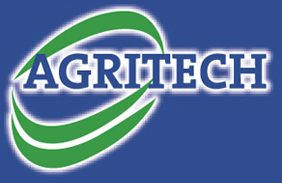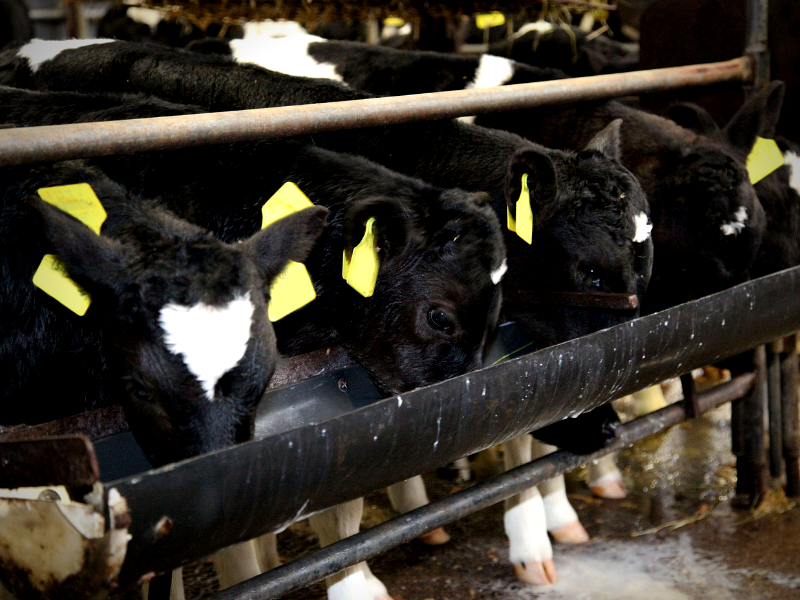As new-born calves are born with undeveloped rumens, the main objective over the next few weeks and months is to implement an early feeding strategy geared towards rumen development.
Rumen development begins within the first few days/weeks after birth and is advanced by exposure to healthy bacteria from the environment and the consumption of solid feeds. Therefore, it is vital to introduce a high energy/protein calf starter ration from approximately 3 days of age, with free access to fresh clean water and high-quality clean straw, offered above ground level to avoid contamination (no silage/haylage).
Importance of diet for early rumen development:
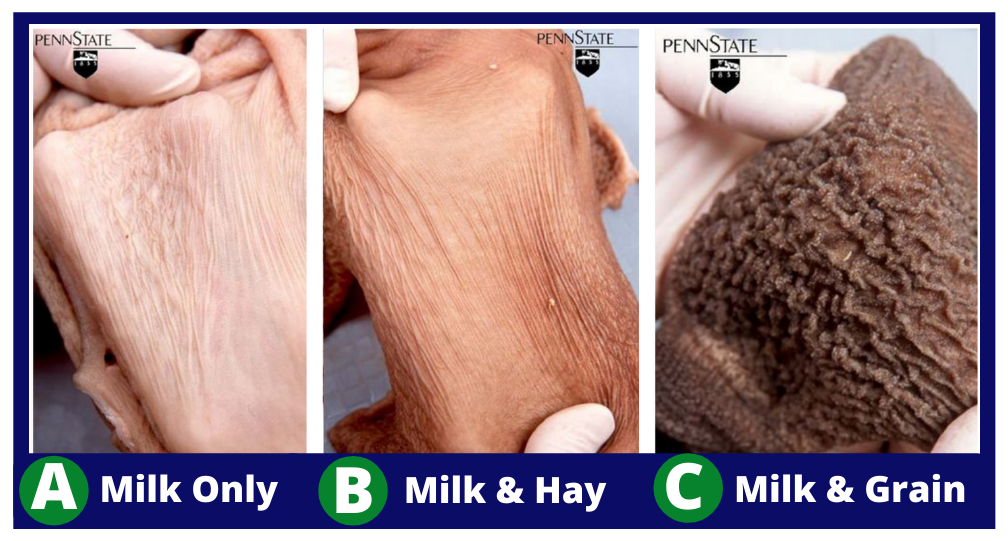
Rumen development at six weeks. When fed milk only (A) the rumen has no papillae and is white in colour, meaning there is little feed absorption possible. When fed milk and grain (C) the rumen at six weeks shows developed papillae and is dark in colour, allowing for significant feed absorption. Source: Penn State University
Managing digestive changes with Vitameg
Once the rumen development process begins at two weeks of age, the subsequent change in digestion and gut function can make the animal highly susceptible to digestive upsets and pathogen challenges. This is where a product like Vitameg has many benefits.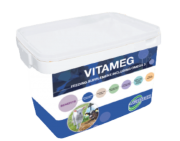
Vitameg is an advanced feeding supplement for young calves. It contains botanical extracts which enhance digestion and stimulate feed intake by optimising the growth of gut microbial flora to outcompete pathogens. Vitameg also contains prebiotic and yeast cell walls commonly referred to as MOS, which helps fight against bacteria such as E-coli and salmonella. It also has added omega-3 which has shown to improve immunity and disease resistance, thereby preventing infection and stress.
What is happening to dairy calves at grass?
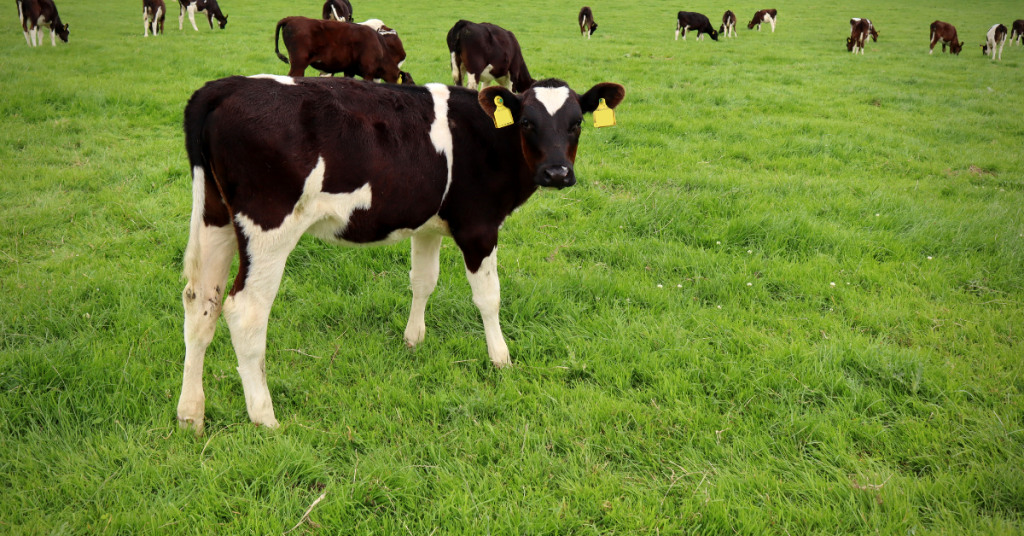
Year on year, in the proceeding weeks after turnout to grass, cases of calves suffering from setbacks such as summer-scour syndrome or calf wasting symptoms have been reported.
Spring grass is very high in oils like CLA (conjugated linoleic acid), sugars and potentially nitrogen, and to a young undeveloped rumen, this can be hard to adjust to. In addition, low covers of grass also have very little fibre, which is a key substrate for good rumen health.
Ensuring greater rumen development in early life will help combat these issues, alongside practices such as offering concentrates post-turnout, grazing slightly heavier covers and/or offering a fibre source at first to ease the transition.
At Agritech, we are available to support farmers throughout the calving season and beyond. For further advice or to find out more about Vitameg, contact your local Agritech sales advisor.

